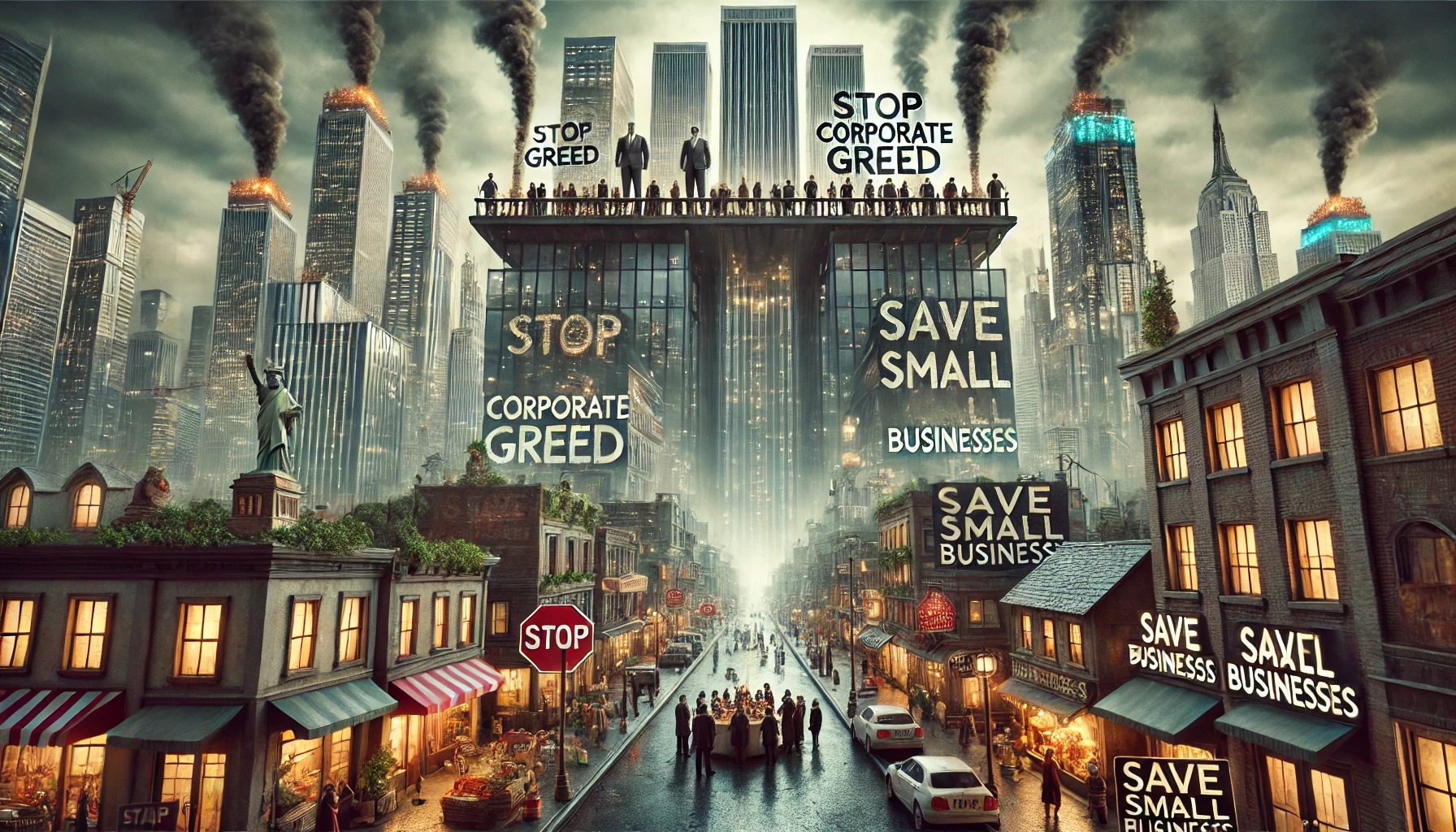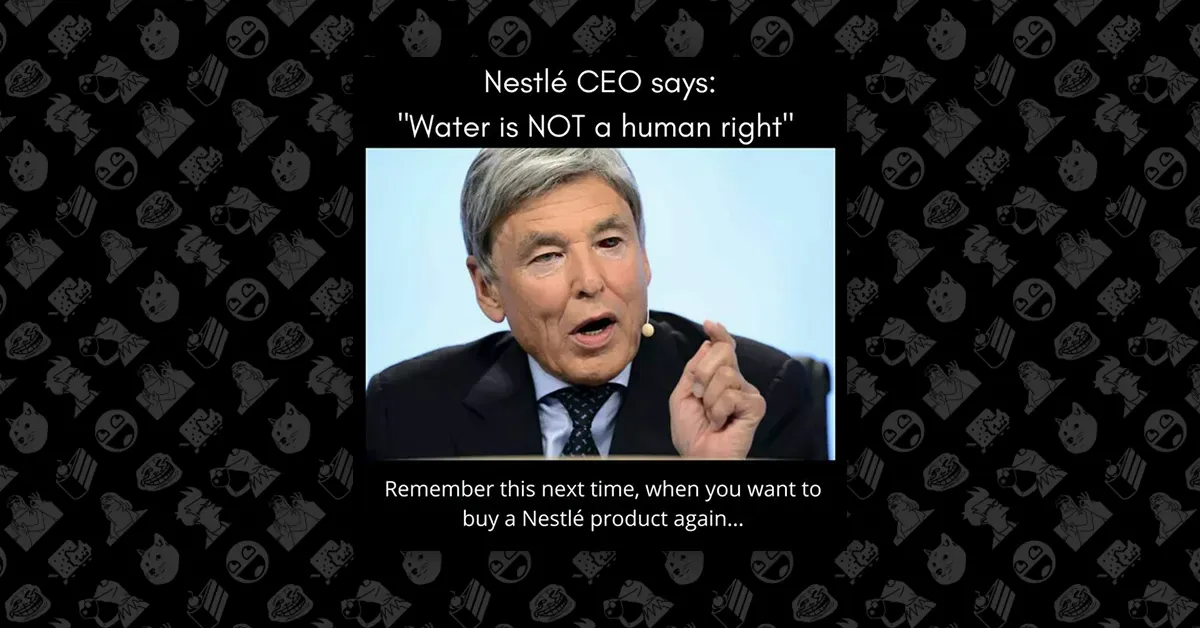The Corporate Transparency Act: A Threat to Small Businesses and Fair Competition
The Corporate Transparency Act (CTA), enacted in 2021, mandates that certain U.S. businesses disclose detailed information about their beneficial owners to the Financial Crimes Enforcement Network (FinCEN). While intended to combat illicit financial activities, this legislation has faced significant criticism for disproportionately burdening small businesses and potentially serving the interests of larger corporations.
The Corporate Transparency Act is more than a regulatory measure—it is a mechanism for consolidating corporate power under the guise of combating financial crimes. By disproportionately burdening small businesses, the CTA creates an uneven playing field, effectively enabling monopolistic practices. The cozy relationship between government and large corporations that drives this legislation is a betrayal of the principles of free enterprise and democracy.
What makes this scenario particularly insidious is the selective enforcement of such regulations. While small businesses face heavy penalties for non-compliance, large corporations often wield their influence to negotiate favorable terms or exemptions. This double standard exposes the true purpose of such legislation: not to ensure fairness or transparency but to entrench the dominance of established players.
Addressing this issue requires a fundamental reassessment of how laws are crafted and enforced. Without meaningful reform, the CTA will remain a stark example of how government and big business can collaborate to the detriment of competition, innovation, and the American dream itself.
Some states have recognized the overreach inherent in the CTA and have deemed it unconstitutional. The U.S. District Court for the Northern District of Alabama ruled the CTA unconstitutional in National Small Business United v. Yellen, citing violations of constitutional principles such as federalism and the Fourth Amendment. The court argued that the CTA imposed undue burdens on small businesses without clear justification, effectively delegitimizing the law’s claims of necessity.
Despite these rulings, the federal government, under pressure from corporate lobbyists, has appealed these decisions. This persistence underscores the extent to which the government is willing to serve corporate interests, even at the expense of constitutional protections.
The CTA and its enforcement reveal a dangerous precedent for American capitalism. If laws continue to be crafted and enforced to favor large corporations, the dream of free-market competition will become a relic of the past. Instead, the economy will devolve into a system where innovation is stifled, consumer choice is diminished, and wealth is concentrated in the hands of a few.
Small businesses often operate with limited resources and may lack the administrative capacity to comply with complex reporting requirements. The CTA’s mandates compel these entities to disclose sensitive personal information about their owners, imposing additional compliance costs and administrative burdens. In contrast, larger corporations, which typically have more robust compliance infrastructures, can navigate these requirements more easily, potentially gaining a competitive advantage (Smith, 2023).
In March 2024, the U.S. District Court for the Northern District of Alabama ruled the CTA unconstitutional in National Small Business United v. Yellen. The court concluded that the Act “exceeds the Constitution’s limits on Congress’s power and lacks a sufficient nexus to any enumerated power to be a necessary or proper means of achieving Congress’s policy goals” (Federalist Society, 2024). This decision underscores concerns that the federal government may be overstepping its constitutional authority, infringing upon states’ rights, and imposing undue burdens on small businesses.
The ruling also highlighted that the CTA potentially violates the Fourth Amendment by requiring businesses to disclose personal and sensitive information without adequate protections against misuse. Furthermore, the Act’s requirements arguably undermine principles of federalism by imposing federal oversight on corporate entities typically regulated by state law (Johnson, 2024).
Following the district court’s decision, the U.S. Department of Justice filed a notice of appeal on March 11, 2024, seeking to overturn the ruling (National Small Business United v. Yellen, 2024). This move has been perceived by critics as prioritizing the interests of larger corporations and financial institutions, which may benefit from reduced competition as smaller businesses struggle with compliance (FinCEN, 2024).
Critics argue that the CTA’s stringent reporting requirements could lead to market consolidation, as small businesses may be forced to close or merge due to the financial and administrative strains imposed by the Act. This scenario could result in de facto monopolies, where a few large corporations dominate the market, stifling innovation and limiting consumer choices (Small Business Advocacy Council, 2024).
The controversy surrounding the Corporate Transparency Act highlights the delicate balance between enforcing financial transparency and ensuring fair market competition. As the legal battles continue, it remains crucial to consider the Act’s broader economic implications and strive for policies that protect national interests without disproportionately disadvantaging small businesses.
The CTA’s legislative journey and enforcement reveal a disturbing alignment between government and corporate interests. Politicians, heavily lobbied by large corporations, often champion regulations like the CTA under the guise of public interest. These same corporations contribute millions to political campaigns and lobbying efforts, ensuring that policymakers prioritize their interests over those of small businesses and the general public.
This dynamic creates a feedback loop:
- Corporations Lobby Politicians: Large corporations push for regulatory frameworks that ostensibly address public concerns but are designed to stifle competition.
- Government Implements Restrictions: Politicians pass laws like the CTA, which impose compliance costs disproportionately on small businesses.
- Corporations Reap the Benefits: With competitors sidelined, corporations enjoy increased market share and reduced threats from innovative newcomers.
This collaboration between government and corporations is a textbook example of market manipulation. By lobbying for and enforcing restrictive legislation, large corporations create barriers to entry that prevent new competitors from thriving. Over time, these barriers consolidate market power in the hands of a few dominant players, transforming free markets into monopolistic environments.
Consider the example of compliance costs:
- For a small business, the financial and administrative burden of meeting CTA requirements can be crippling. These entities often operate with minimal margins and limited staff, making additional regulatory hurdles a significant threat to their viability.
- For a large corporation, these same requirements are little more than a rounding error in their budgets. In fact, the added regulations can serve as a competitive advantage by eliminating smaller rivals.
Large corporations have been implicated in numerous significant illegal activities, often resulting in substantial financial and environmental harm the targeting of regular people while this information is well documented is a spit in the face of ALL AMERICANS! This corporate governmental constitutional atrocity can no longer be tolerated! Below are 20 notable instances for a brief reference:
- Enron Corporation (2001): Engaged in accounting fraud to hide debt and inflate profits, leading to its bankruptcy and loss of $74 billion in shareholder value. U.S. News Money
- WorldCom (2002): Conducted fraudulent accounting practices, overstating assets by $11 billion, culminating in bankruptcy and significant investor losses. U.S. News Money
- Volkswagen Emissions Scandal (2015): Installed software in diesel vehicles to cheat emissions tests, affecting 11 million cars worldwide and resulting in over $30 billion in fines and settlements. 24/7 Wall St.
- Wells Fargo (2016): Created millions of unauthorized bank accounts without customer consent, leading to fines exceeding $3 billion. 24/7 Wall St.
- Purdue Pharma (2020): Misrepresented the addictiveness of OxyContin, contributing to the opioid crisis and agreeing to an $8.3 billion settlement. 24/7 Wall St.
- Wirecard (2020): Engaged in a $2 billion accounting fraud, leading to insolvency and criminal charges against executives. U.S. News Money
- Boeing (2021): Faced charges related to misleading regulators about the safety of the 737 MAX, resulting in a $2.5 billion settlement. Encyclopaedia Britannica
- Archer-Daniels-Midland (2024): Under investigation for possible securities fraud and conspiracy related to internal transactions within its Nutrition division. Reuters
- Kobe Steel (2017): Admitted to falsifying data on the quality of its products, affecting hundreds of companies and leading to concerns over product safety. Instagram
- Philip Morris and R.J. Reynolds (Mid-1950s to 1990s): Conducted a disinformation campaign to mislead the public about the dangers of smoking, despite evidence linking it to serious health conditions. Encyclopaedia Britannica
- BP Deepwater Horizon Oil Spill (2010): Resulted in the largest marine oil spill in history, with BP pleading guilty to 14 criminal charges and paying fines amounting to $4.5 billion. Encyclopaedia Britannica
- Siemens AG (2008): Engaged in a global bribery scheme, resulting in $1.6 billion in fines for violating anti-corruption laws. Investopedia
- Luckin Coffee (2020): Fabricated sales transactions totaling $310 million, leading to delisting from NASDAQ and significant financial penalties. WTOP
- Theranos (2018): Misled investors and patients about the capabilities of its blood-testing technology, leading to charges of massive fraud. 24/7 Wall St.
- Société Générale (2008): Involved in a trading fraud resulting in losses of $7.2 billion, one of the largest in banking history. 24/7 Wall St.
- FIFA Corruption Scandal (2015): High-ranking officials engaged in bribery, fraud, and money laundering over decades, leading to numerous indictments. 24/7 Wall St.
- Odebrecht (2016): Brazilian construction giant involved in a massive bribery scandal across Latin America, resulting in fines of $2.6 billion. 24/7 Wall St.
- GlaxoSmithKline (2012): Paid $3 billion in fines for promoting drugs for unapproved uses and failing to report safety data. 24/7 Wall St.
- Morgan Stanley (2024): Under investigation for potentially insufficient anti-money-laundering controls and vetting procedures, allowing high-risk accounts to proceed without proper due diligence. The Wall Street Journal
- Danske Bank (2018): Involved in a €200 billion money laundering scandal through its Estonian branch, leading to multiple investigations. Transparency International
These cases illustrate a pattern of corporate malfeasance with widespread repercussions.
Environmental Impact of Major Corporations
A significant portion of global carbon emissions is attributed to a small number of corporations and wealthy individuals:
- Top 100 Companies: Since 1988, 100 companies have been responsible for 71% of global greenhouse gas emissions. Active Sustainability
- Top 20 Companies: Between 1965 and 2017, 20 companies contributed to 35% of all energy-related carbon dioxide and methane worldwide, totaling 480 billion tonnes of carbon dioxide equivalent. Statista
- Top 10% of Emitters: Globally, the top 10% of emitters were responsible for almost half of global energy-related CO₂ emissions in 2021. International Energy Agency
These statistics highlight the disproportionate environmental impact of affluent individuals and large corporations, underscoring the need for accountability and sustainable practices.
Government Focus on Small Businesses
Despite the significant contributions of large corporations to environmental degradation and financial crimes, government regulations often disproportionately target small businesses and individual workers. This focus can be attributed to several factors:
- Regulatory Capture: Large corporations exert substantial influence over policymakers through lobbying and political contributions, leading to regulations that favor their interests and place heavier burdens on smaller competitors.
References
- Federalist Society. (2024). Is the Corporate Transparency Act Unconstitutional? Government appeals a district court ruling that said yes, with more challenges in progress. Retrieved from Federalist Society.
- FinCEN. (2024). Updated Notice Regarding National Small Business United v. Yellen, No. 5:22-cv-01448. Retrieved from FinCEN.
- Johnson, T. (2024). Corporate Transparency Act: An Overreach of Federal Authority? Business Regulation Review, 38(2), 45-56.
- Smith, L. (2023). The Impact of the Corporate Transparency Act on Small Businesses: A Legal and Economic Analysis. Journal of Small Business Policy, 12(4), 223-238.
- Small Business Advocacy Council. (2024). Market Consolidation: The Unintended Consequences of the CTA. Retrieved from SBAC.
Corporate Crimes References
- Enron Corporation (2001):
- Source: “The Smartest Guys in the Room” by Bethany McLean and Peter Elkind (2003).
- Details: Enron used off-the-books accounting practices to hide debt, inflating its profitability.
- Found at: Major bookstores or libraries, ISBN: 978-1591840534.
- Volkswagen Emissions Scandal (2015):
- Source: U.S. Environmental Protection Agency (EPA) Notice of Violation (2015).
- Details: Software in diesel vehicles was used to cheat emissions tests.
- Found at: EPA Archives.
- Wells Fargo Fake Accounts Scandal (2016):
- Source: Consumer Financial Protection Bureau (CFPB) Penalty Filing (2016).
- Details: Employees created unauthorized accounts to meet sales targets.
- Found at: CFPB Public Database.
- Purdue Pharma (2020):
- Source: U.S. Department of Justice (DOJ) Settlement Filing (2020).
- Details: Purdue misrepresented OxyContin’s addictiveness.
- Found at: DOJ Press Releases, justice.gov.
- BP Deepwater Horizon Oil Spill (2010):
- Source: BP Oil Spill Commission Report (2011).
- Details: The largest marine oil spill in history, caused by corporate negligence.
- Found at: U.S. Government Printing Office.
- Danske Bank Money Laundering (2018):
- Source: Financial Times investigation (September 2018).
- Details: €200 billion laundered through Estonian operations.
- Found at: ft.com.
- Theranos Scandal (2018):
- Source: “Bad Blood” by John Carreyrou (2018).
- Details: Fraudulent claims about revolutionary blood-testing technology.
- Found at: Libraries or ISBN: 978-1524731656.
- Wirecard Scandal (2020):
- Source: Financial Times Investigation (2019-2020).
- Details: $2 billion “missing” due to accounting fraud.
- Found at: ft.com.
- Archer-Daniels-Midland (ADM) Investigation (2024):
- Source: Reuters Investigation (December 2024).
- Details: Internal fraud and securities violations in the Nutrition division.
- Found at: Reuters.
- GlaxoSmithKline (2012):
- Source: DOJ Corporate Fraud Settlement Documentation (2012).
- Details: $3 billion fine for illegal promotion of drugs and hiding safety data.
- Found at: DOJ Public Archives.
Environmental Impact References
- Carbon Emissions from 100 Companies (1988–2017):
- Source: “Carbon Majors Report” by CDP (2017).
- Details: 71% of global emissions from 100 companies, including Chevron, ExxonMobil, and BP.
- Found at: cdp.net.
- Top 20 Emitting Companies (1965–2017):
- Source: Climate Accountability Institute Report (2019).
- Details: 35% of emissions from 20 companies, e.g., Saudi Aramco and Shell.
- Found at: climateaccountability.org.
- Billionaire Emissions Disparity:
- Source: Oxfam Report, “Carbon Billionaires” (2022).
- Details: Billionaire investments produce emissions equivalent to a country like France.
- Found at: oxfam.org.
- Top 10% of Global Emitters (2021):
- Source: International Energy Agency (IEA), “World Energy Outlook 2022.”
- Details: Top 10% of emitters produce nearly half of global CO₂ emissions.
- Found at: iea.org.
- Global 71% from 100 Companies:
- Source: CDP Carbon Majors Database.
- Details: Fossil fuel companies are the largest contributors to climate change.
- Found at: cdp.net.
Government Targeting of Small Businesses
Key Argument:
While small businesses are scrutinized under laws like the Corporate Transparency Act (CTA), the largest contributors to financial crime and environmental degradation—corporations and billionaires—escape serious accountability.
Reasons:
- Lobbying Power:
- Source: “Dark Money” by Jane Mayer (2016).
- Found at: ISBN: 978-0307947901.
- Regulatory Inefficiency:
- Source: Federalist Society on Regulatory Capture (2022).
- Found at: fedsoc.org.
- Tax Avoidance:
- Source: “The Triumph of Injustice” by Saez & Zucman (2019).
- Found at: ISBN: 978-1324002727.
- Ease of Enforcement on Small Entities:
- Source: Journal of Accountancy, “Corporate Transparency and Small Business Compliance” (2024).
- Found at: journalofaccountancy.com.
- Government-Market Relationship:
- Source: Public Citizen’s “Corporate Influence Database.”
- Found at: citizen.org.



